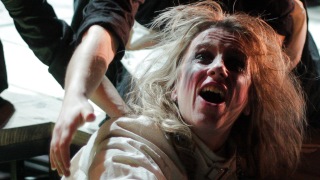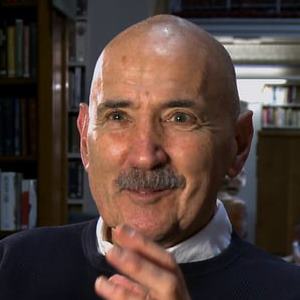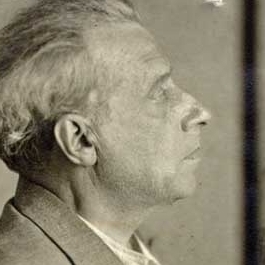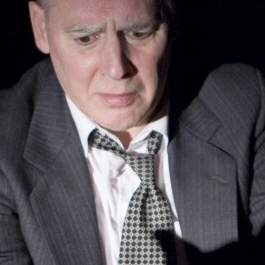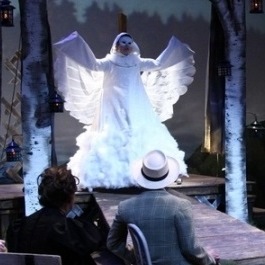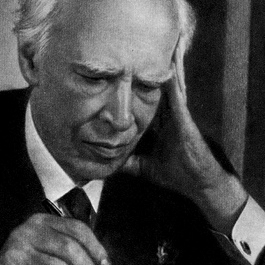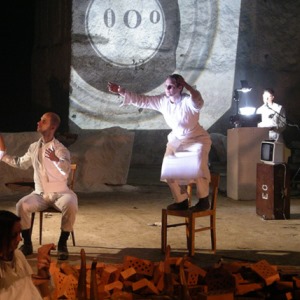Maria Osipovna Knebel (1898–1985), actor, director, teacher, and author of six books on acting and directing, is arguably the most influential figure in twentieth-century Russian theatre, next to Stanislavski.
Knebel studied acting (1918–21) with the Moscow Art Theatre (MAT) actor, Michael Chekhov, who focused his training on imagination and improvisation. Knebel then enrolled in MAT’s Second Studio School, which taught the full Stanislavski System. As an actor at MAT (1924–50) Knebel excelled in character roles (including Charlotta in The Cherry Orchard). She also served as one of Stanislavski’s assistants in his last private workshop, the Opera-Dramatic Studio (1935–8), where she encountered the rehearsal technique she would later call 'active analysis', thus distinguishing it from the widely publicised but Soviet distortion known as 'Method of Physical Actions'. Knebel became particularly identified with active analysis because she embraced its holistic methods in her directing, teaching and writing, even during the Stalinist ban against it (1940s–1950s).
Knebel first directed in 1934 for a group of actors from Vsevolod Meyerhold’s Theatre of the Revolution (known for its biomechanical actor training and non-realistic productions). She continued directing at the Ermolova Studio Theatre (1935–41), often co-directing with members of Meyerhold’s company and always using active analysis. In 1942 she co-directed at MAT with the company’s co-founder, playwright Vladimir Nemirovich-Danchenko.
In 1950, Knebel became Artistic Director at the Central Children’s Theatre, where she developed an impressive troupe of professional actors who performed in classics by Shakespeare and Molière, new plays on contemporary issues, and fairytales devised entirely from the company’s improvisations. In 1961, Knebel accepted the chairmanship of the directing programme at Moscow’s Russian Academy for Theatrical Arts (formerly GITIS), where she devoted herself to full-time teaching and writing until her death in 1985. Her curriculum is still taught there. Sharon Carnicke
Image: Knebel as Charlotta in Chekhov’s The Cherry Orchard performed by the Moscow Arts Theatre

